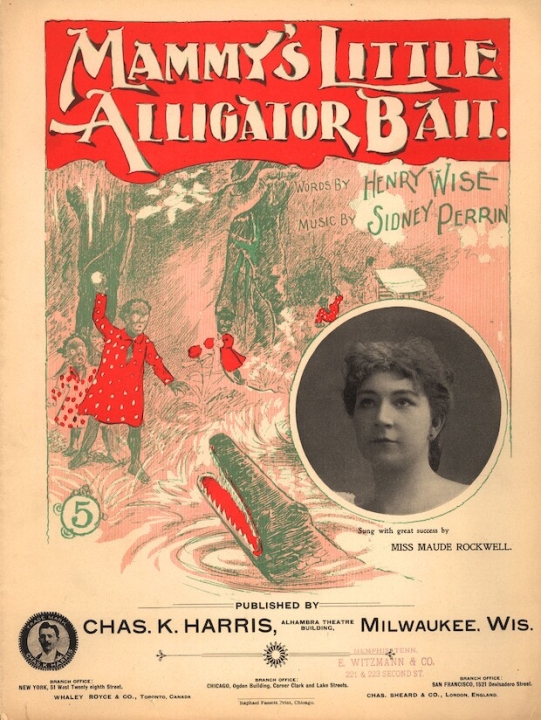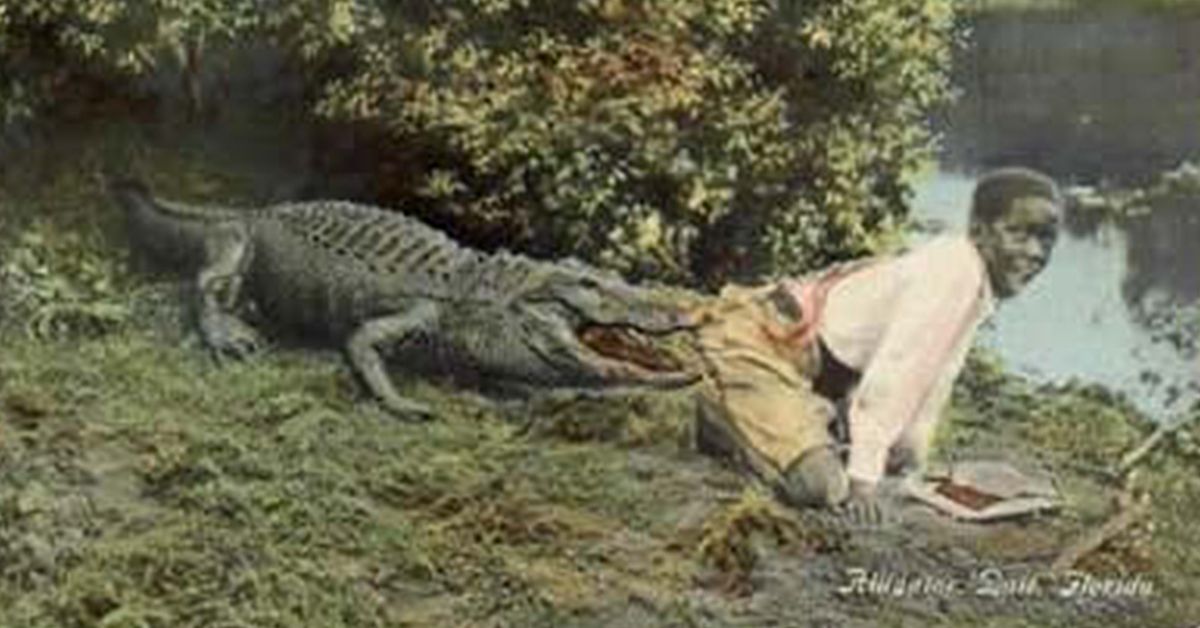Alligator Bait Black Babies: A Dark Chapter In History You Need To Know
Let’s face it, folks. The topic of alligator bait black babies is one that’s heavy, haunting, and absolutely crucial to understand. It’s not just a random phrase; it’s a part of history that has been swept under the rug for far too long. This isn’t just about alligators or babies—it’s about the dark realities of systemic racism, exploitation, and the resilience of those who survived against all odds.
When we talk about history, we often focus on the big battles, the famous leaders, and the grand victories. But there’s a quieter, darker side to history that doesn’t get the attention it deserves. Alligator bait black babies is one of those stories. It’s not just a shocking headline—it’s a reflection of how far we’ve come and how far we still need to go.
Now, before you think this is just another history lesson, let me tell you—this story hits hard. It’s not just about the past; it’s about understanding the present and shaping the future. So, buckle up because we’re diving deep into a topic that needs to be talked about, not ignored.
Read also:Unleash Your Strength Discover The Ultimate Bodybar Pilates Oak Park Experience
What Exactly Is Alligator Bait Black Babies?
Alright, let’s break it down. The term "alligator bait black babies" refers to a horrifying practice that took place in Florida during the early 20th century. Poor African American children were used as lures to catch alligators for tourists and hunters. Sounds insane, right? But it’s true, and it’s a part of history that many would rather forget.
Here’s how it worked: Tourists would pay to watch alligator shows where these massive creatures were lured out of the water using live bait. And in some cases, that bait was children. Young, vulnerable kids were forced into the water to attract alligators, creating a spectacle that was both thrilling and deeply disturbing. It’s a practice that screams exploitation, and it’s one that deserves to be remembered.
The Horrific Reality Behind the Practice
Let’s talk about the reality. These weren’t just random kids—these were children from impoverished families who had no choice. Poverty and systemic racism played a huge role in this dark chapter. Families were coerced into letting their children participate in these dangerous acts, often under the guise of economic necessity. The kids weren’t paid much, if at all, and the risks were astronomical.
Imagine being a parent in that situation. You’re desperate, struggling to feed your family, and someone offers you a few dollars to let your child be used as bait. It’s a nightmare scenario that no one should have to face. But for many African American families in Florida during this time, it was a reality they couldn’t escape.
Biography: The Faces Behind the Story
While the names of many children involved in this practice have been lost to history, there are a few stories that have survived. These are the faces and voices we need to remember.
Meet the Forgotten Heroes
Name: Johnny Green
Age: 8 years old
Location: Everglades, Florida
Role: Alligator bait
Outcome: Survived but carried the trauma for life
Read also:The Hamptons Music Group Your Ultimate Guide To Unleashing Melodic Vibes
Name: Mary Johnson
Age: 6 years old
Location: Miami, Florida
Role: Bait handler
Outcome: Disappeared during a hunting trip
These are just two examples of the countless children who were caught up in this dark practice. Their stories are a reminder of the human cost of exploitation and the importance of never forgetting our past.
The Numbers Don’t Lie: A Statistical Look
According to historical records, hundreds of children were involved in alligator baiting during the early 1900s. The exact number is hard to pin down, but estimates suggest that at least 500 children were used as bait across Florida. The mortality rate was alarmingly high, with many children losing their lives in the process.
- At least 500 children were used as bait
- Mortality rate: Estimated at 30%
- Most victims were African American
- Practice lasted from 1900 to the late 1930s
These numbers are more than just statistics—they’re a call to action. They remind us of the importance of addressing systemic issues and ensuring that history doesn’t repeat itself.
Why Does This Matter Today?
Fast forward to today, and you might be wondering why this matters. The answer is simple: it’s all about understanding the roots of systemic inequality. The practice of using alligator bait black babies wasn’t just a one-off event; it was part of a larger system of oppression that still affects marginalized communities today.
We see echoes of this history in modern issues like racial profiling, economic inequality, and lack of access to education and healthcare. By acknowledging the past, we can work towards a future where everyone has a fair shot at success.
Connecting the Dots: Past and Present
Think about it—many of the challenges faced by African American communities today can be traced back to practices like alligator baiting. The trauma of exploitation, the lack of economic opportunities, and the lingering effects of systemic racism are all interconnected. It’s a cycle that needs to be broken, and understanding history is the first step.
Breaking the Silence: Why We Need to Talk About It
For too long, this story has been ignored. It’s not in textbooks, it’s not in museums, and it’s not part of the mainstream narrative. But that needs to change. By talking about alligator bait black babies, we’re shining a light on a dark chapter of history that deserves to be remembered.
This isn’t just about the past—it’s about the present and the future. When we acknowledge the wrongs of the past, we create space for healing, understanding, and progress. It’s about giving voice to those who were silenced and ensuring that their stories are never forgotten.
The Importance of Education
Education is key. Schools need to include this history in their curriculums. Museums need to display exhibits that honor the victims. And we, as a society, need to have open and honest conversations about race and inequality. It’s not an easy topic, but it’s a necessary one.
How Can We Make a Difference?
So, what can you do? Here are a few ideas:
- Learn more about the history of alligator bait black babies
- Support organizations working to address systemic inequality
- Talk to your friends and family about this topic
- Advocate for better representation in education and media
Every action, no matter how small, contributes to a larger movement for change. It’s about creating a world where everyone is treated with dignity and respect.
Conclusion: Remembering the Forgotten
In conclusion, the story of alligator bait black babies is one that needs to be told. It’s a reminder of the resilience of those who survived and the importance of never forgetting our past. By understanding this history, we can work towards a future where exploitation and inequality are things of the past.
So, what’s next? Share this article, start a conversation, and keep learning. Together, we can make a difference. And remember, history isn’t just something that happened—it’s something that shapes who we are today.
Table of Contents
- What Exactly Is Alligator Bait Black Babies?
- The Horrific Reality Behind the Practice
- Biography: The Faces Behind the Story
- The Numbers Don’t Lie: A Statistical Look
- Why Does This Matter Today?
- Connecting the Dots: Past and Present
- Breaking the Silence: Why We Need to Talk About It
- The Importance of Education
- How Can We Make a Difference?
- Conclusion: Remembering the Forgotten
Article Recommendations


